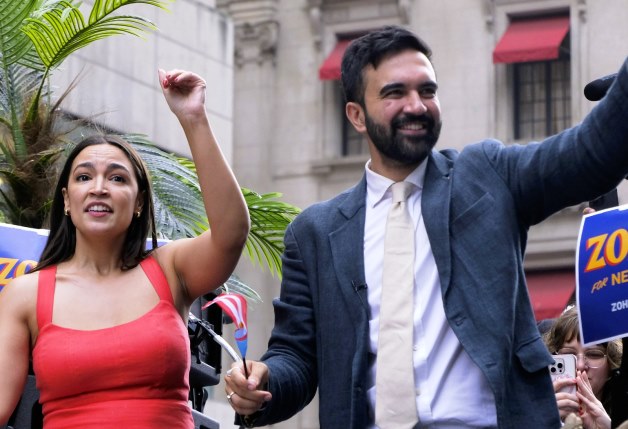
India And UN, The Coveted Prize
Foremost in the speeches of Indian leadership and diplomats as India occupies the chair of the UN Security Council for a month as non-permanent member will be demands to convert its status to a permanent veto holding power in future. It will be Modi’s crowning glory if he achieves it in his term. India has been campaigning since 1990s for UN super five to become super five plus in the Security Council
India has made its case for a seat as permanent member of UN on the strength of being a regional superpower, a world economic power, the ‘biggest’ democracy, second highest number of citizens (16% of world population), long civilization, tolerance, diversity, compliance with UN treaties, commitment to multilateralism, newborn interest on climate change and growing influence in the world. By any one’s reckoning it is a deserving claim if the only long due change in UN was expansion.
That the United Nations needs to change is obvious. It is neither representative nor does it deliver what it set out to do. It was formed by western countries after the Second World War to ‘save succeeding generations from the scourge of war’. The institution is divested to prevent wars between countries. Power and War have both overtaken the era of nation State monopoly. The UN is out of depth in the new world of Transnational Corporations (Amazon, Facebook, Shell etc), Global Wars (Al Qaeda, ISIS) and internal conflicts.
Launched officially on 24th October 1945, the UN institutional structure was developed to maintain western hegemony and award the victors of the Second World War with permanent control. The USA, United Kingdom, France, the Soviet Union and China gave themselves veto power in the Security Council, the organ of UN that essentially lords over everything United Nations. Africa, Middle East and South Asia were completely ignored so was the Latin world such as South America.
ALSO READ: The Future Of America
The rest of the world has the General Assembly which can decide by simple or two third majority on a number of matters including punitive changes to UN. But altering the Security Council needs the veto holding members to finally say yea or nay. That is where India’s main hurdle lies.
The pro-West Republic of China, now exiled to the island of Taiwan, had the veto. But it was overthrown by Communists in 1949 making mainland China the People’s Republic of China. Within a short time and even before it became a world power, China successfully moved the rest of the world against American wishes, to replace Taipei (Taiwan) at the top table in 1971.
The 1970’s was a decade of opportunity for India to have pushed for expansion of Security Council. But Mrs Gandhi had already waged a war on Pakistan in 1971 making it difficult for Islamic world to support it then. She then busied herself becoming a dictator in India in 1976 losing the trust of western powers. Moreover India was too close to the Soviet despite pretending to be ‘non Aligned.
In the 1980s and 90s India had waged war on Sikhs and Sri Lanka with disastrous outcome. It lost two Prime Ministers. It didn’t quite give the impression of a responsible country that could hold the peace within India let alone save the planet from scourge of future war.
By the time India dusted itself, gained the trust of both the west and Russia, China became a superpower and now stands in its way saying ‘mei men er’ (no way).
Furthermore India’s game plan is somewhat unimaginative. India ticks all the boxes that make it a ‘most favourable’ salesperson for western ideological hegemony in upholding status quo world order. The West and even Russia (at least verbally) would like to see it in an expanded UN Security Council. China however is subtly seeking to overhaul the current fundamental western liberal foundations of the United Nations to one based on a pluralistic political thought.
ALSO READ: India-China Faceoff – De-escalation Or Status Quo Ante?
Similar currents are underway in other parts of the world. In Sub Saharan Africa there is a growing search for an indigenous civilizational philosophy that is distinct from influences of Islam or Christianity.
The Islamic world is still going through a painful period of evolving a sustainable political system that is representative of the people but distinct from western secularism. Iran has shown that there is a viable Islamic democratic polity possible.
India on the other hand has locked itself with the west. Simply reassigning secular Westphalian ethno-nationalism to a mythic non-existent Hindu ethnicity does not make a civilisation distinct.
India’s lack of constructive originality is evident in its historic failure to lead the post-colonial world by example out of the havoc colonialism created with ill thought out territorial boundaries and disregarding of historic national communities.
The post-colonial world is riddled with territorial disputes. India is at the front with territorial conflicts with Pakistan and disputes with its other neighbours including China.
Colonial boundaries fragmented communities. ‘Peoples’ like the Somalis and Masai were split by arbitrary map lines drawn during colonialism. Others were forcibly grafted onto States without consultation. The Sikhs, Tamils, Kashmiris and Nagas among many feel their nationalism has been suppressed by post-colonial States in which they find themselves.
The Europeans can and cannot be blamed for this. They came as exploitative conquerors and colonialists not as ethical saviours or messiahs. It needed a mature and creative leadership from one of the post-colonial States to propose a resettlement of boundaries through dialogue and address hopes of historic nations within with an original political system. That would have been a model for other post-colonial States to have followed.
Instead India acted as was predicted by some British politicians such as Churchill. Instead of drawing wisdom from its civilization, it adopted the Westphalian nation state model, obsessed with every inch of territory given to it by the British and forcing every minority indigenous historic nation within to forego its aspirations and accept the majority vision of a supra nation.
In contrast, the five permanent members of the Security Council all have something original to offer. Britain gave the world the parliamentary democratic system. The USA gave separation of Church and State along with rule of law. France gave the world human rights theory.
Russia (Soviet Union) offered a communist alternative to western liberal democracy. China brings a completely different civilization now increasingly being constructed around its current political interpretation of Confucian thought.
It is not clear what India would bring to the table. With minor variations, India has competitors in Brazil, Germany, Japan and a few others. If it is to stake its claim as a regional economic power then, North Africa and Sub Saharan Africa, Middle East and South America are also contenders. The UN would need 10 permanent members if not more.
However expanding the UN isn’t going to make the world any more peaceful, resolve the issues that are now out of UN’s depth or lead to a future free from scourge of war. India could have won immense respect and world leadership had it led the post-colonial period with solutions to the inevitable problems of territorial tensions and internal disputes inherited from European rule.
India’s choices are limited. It can appease China by sacrificing land to China and Pakistan. India can join up with the west to push China into submission and accept Indian seat at UN. Or it can bring some originality to world peace.
But as a risk averse and conservative institution, the Indian Ministry of External Affairs (MEA) is not known for imaginative leaps in international theory. India has been competing for recognition in yester world of 1970s. The future of UN is being changed by China, for better or for worse slowly eroding hegemony of western political paradigm. The UN will metamorphose but not into what MEA has prepared for.



